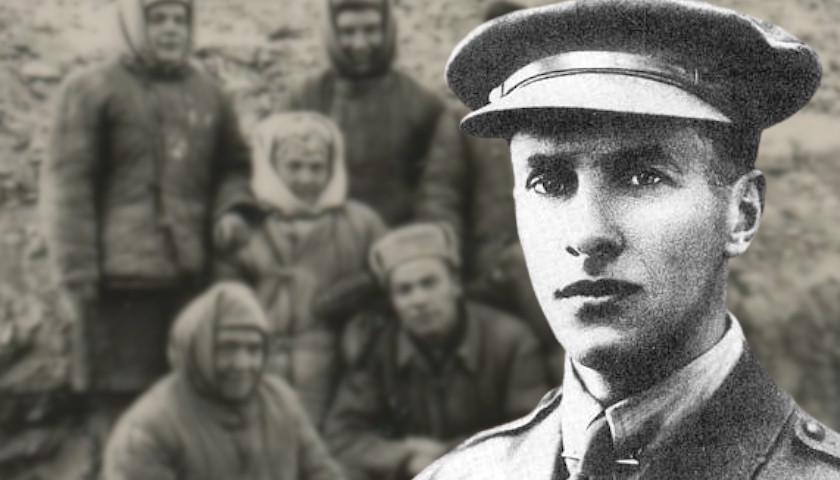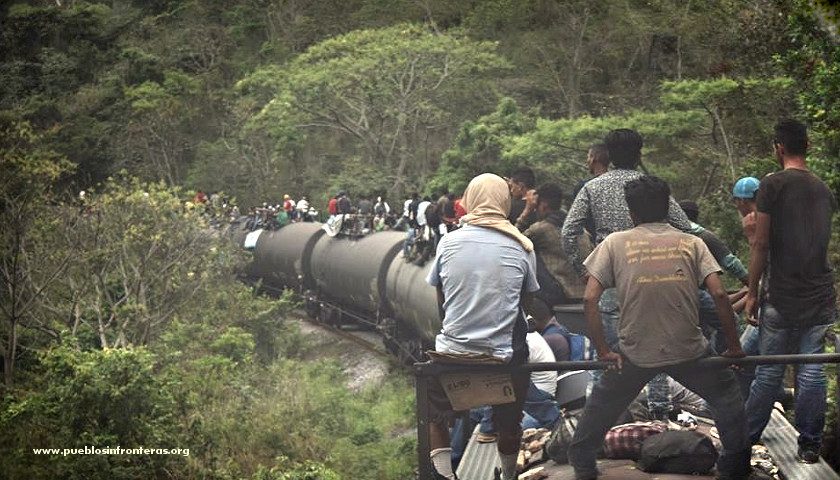by Harold Hutchison
Historians say that a New York Times reporter aided the Soviet Union’s attempts to conceal a genocide.
The late Walter Duranty, whom many historians accused of helping Josef Stalin’s regime hide the Holodomor, a man-made famine that was used as an instrument of genocide that killed at least 3.9 million people, served as the Times’ top reporter in Moscow for 14 years.
“Not only did communists in the USSR cover it up, but so did communists in America who quite literally swore a loyalty oath to Stalin’s Soviet Union when they formally joined the American Communist Party,” Paul Kengor, a Cold War historian and professor of political science at Grove City College, told the Daily Caller News Foundation. “Also covering it up, quite shamelessly, was the New York Times’ now-infamous ‘Man in Moscow,’ Walter Duranty, who scandalously would be awarded the Pulitzer Prize, despite his woefully misleading journalism.”
“Duranty was known as, according to Paul Johnson, the most comprehensive of Stalin’s apologists,” said Larry Schweikart, a retired history professor, author of “A Patriot’s History of the United States.”
The New York Times and Pulitzer Prize Board: Revoke Walter Duranty Pulitzer Prize – Sign the Petition! https://t.co/fREgV2xI7Y via @UKChange
— Marta Gibbons (@MartaGibbons) March 11, 2022
 Kengor cited a 1933 article in the New York Times by Duranty headlined, “Russians Hungry, But Not Starving.”
Kengor cited a 1933 article in the New York Times by Duranty headlined, “Russians Hungry, But Not Starving.”
“In the middle of the diplomatic duel between Great Britain and the Soviet Union over the accused British engineers, there appears a big scare story in the American Press about famine in the Soviet Union,” Duranty wrote.
Duranty went on to claim that he thought Jones’s “judgment was somewhat hasty” and also infamously added later on, “you can’t make an omelette without breaking eggs.”
The article had been written in response to reports by Welsh journalist Gareth Jones, who had exposed the famine in the Ukraine in a dispatch, according to a website set up by Jones’ relatives that included a 2003 open letter calling for the retraction of Duranty’s Pulitzer Prize.
“If it is grave now and if millions are dying in the villages, as they are, for I did not visit a single village where many had not died, what will it be like in a month’s time?” Jones wrote in the March 31, 1933, London Evening Standard. “The potatoes left are being counted one by one, but in so many homes the potatoes have long run out.”
Kengor claimed that Duranty had been heavily “wined and dined” by Stalin, whose regime also provided perks that included “a nice chauffeured car, assistants, and a handy cook-secretary-turned-mistress named Katya” who eventually had a son fathered by the New York Times reporter.
Historian Anne Applebaum noted that Duranty was seen as “enormously useful to the regime, which went out of its way to ensure that Duranty lived well in Moscow,” in the Atlantic, adding, “He had a large flat, kept a car and a mistress, had the best access of any correspondent, and twice received coveted interviews with Stalin.”
Duranty’s Pulitzer Prize was awarded in 1932 for a series of articles in 1931 and has not been revoked according to a 2003 statement by the organization that awards them.
“In recent months, much attention has been paid to Mr. Duranty’s dispatches regarding the famine in the Soviet Union in 1932-1933, which have been criticized as gravely defective,” the Pulitzer Prize Board said. “However, a Pulitzer Prize for reporting is awarded not for the author’s body of work or for the author’s character but for the specific pieces entered in the competition.”
It's such a terrible story. Moscow bureau chief for the NYT 1922–1936 was a propagandist for the USSR and Stalin, covering his crimes. https://t.co/kTNNGPmilZ
— Virginia Heffernan (@page88) March 10, 2022
“The famine of 1932-1933 was horrific and has not received the international attention it deserves,” the Pulitzer Prize Board added, going on to say that it “extends its sympathy to Ukrainians and others in the United States and throughout the world who still mourn the suffering and deaths brought on by Josef Stalin.”
When contacted by the DCNF, the New York Times referred us to a statement on its website.
“Duranty’s cabled dispatches had to pass Soviet censorship, and Stalin’s propaganda machine was powerful and omnipresent,” the online statement read, adding, “Duranty’s analyses relied on official sources as his primary source of information, accounting for the most significant flaw in his coverage – his consistent underestimation of Stalin’s brutality.”
“Taking Soviet propaganda at face value this way was completely misleading, as talking with ordinary Russians might have revealed even at the time,” the New York Times went on to say, adding that Stalin sent those Ukrainian farmers who resisted collectivization to “concentration camps.”
Duranty did provide an estimate to the British Embassy that as many as ten million people had died, the Guardian reported in 2003.
– – –
Harold Hutchison is a reporter at Daily Caller News Foundation.
Background Photo “Gulag Political Prisoners” by Europeana. CC BY 4.0.





